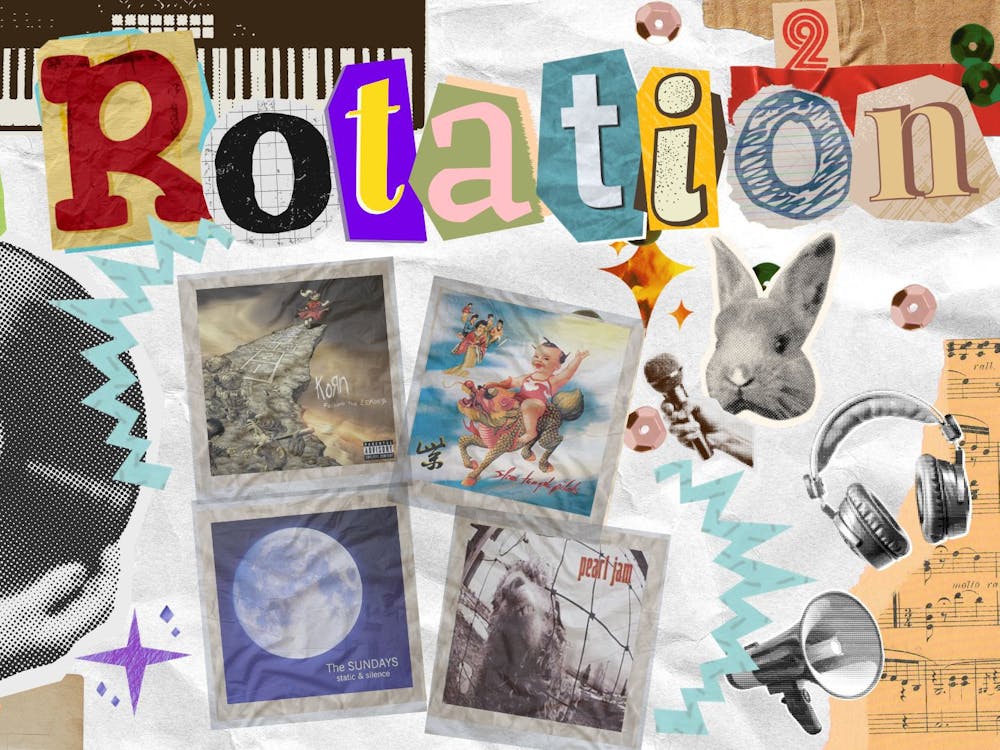By Devon Shuman, Senior Staff Writer
One of the biggest stories to come out of awards season so far is the controversial crowning of director Ridley Scott's "The Martian" as Best Comedy at the Golden Globes.
Best Comedy? You mean that one where Matt Damon gets stranded on Mars and has to fight to survive, all while dealing with crushing loneliness and his impending mortality?
The public response was not so much one of outrage, as one of confusion. How could the film, which dealt with such dark thematic material, be considered a comedy, let alone the best of the year?
My initial response to this was that the sci-fi film's victory could simply be the result of the Golden Globes' dualistic mode of categorization. If you're going to divide films and TV shows into strict "Comedy" and "Drama" categories, then anything with a few jokes has the chance to be relegated as the former. Maybe "The Martian" isn't laugh-out-loud funny, but if I'm looking to brighten the mood I'd certainly choose it over "The Revenant."
As I thought more about it, however, I wondered if there might not be a deeper reason behind this. What if the problem wasn't with the Golden Globes, but with us, the public?
Sure, "The Martian" wasn't filled end to end with one-liners and pratfalls, but I would argue that it is, at its heart, a comedy.
Matt Damon's character, Mark Watney, manages to make us laugh a lot, whether it's declaring himself a space pirate, telling his commander he's sick and tired of her disco music or exclaiming, "in your face, Neil Armstrong," after growing crops on Mars.
This isn't just comic relief. In the movie, as in the book it was based on, one of the main focuses was that, in addition to his scientific expertise, what helped Watney survive was his lighthearted sense of humor in the face of overwhelming tragedy.
What makes "The Martian's" victory so perplexing isn't the format of the Golden Globes, but rather the public's perception of what makes a comedy a comedy.
Maybe it's due to the seemingly strict distinction between comedy and drama, or maybe it's because we've been bombarded with Adam Sandler-esque laugh fests that aim only to stuff as many jokes into 90 minutes as possible. Either way, we've begun to believe that comedies are strictly humorous and dramas are strictly dark and emotional.
This is not the case.
Enjoy what you're reading?
Signup for our newsletter
The measure of how good a comedy is shouldn't be the level of its hilarity, but rather the way in which it utilizes humor. I might laugh myself silly watching "We're the Millers," for the umpteenth time, but it doesn't mean it's going to be winning awards anytime soon. Whereas movies that we might traditionally think of as "comedies" use it only to amuse, "The Martian" used humor to inspire.
One realm in which this distinction is slightly clearer is television. Some of the greatest comedies on the air right now are filled with complex emotional material.
"You're the Worst" on FXX deftly balances clever writing and wit with a harrowing examination of clinical depression. Louis C.K.'s "Louie" has an overall depressing feel to it, but always manages to provide glimmers of beauty and hope. "Fargo," both the film and the magnificent television adaptation, is bleak and dark in nature, but quietly hilarious.
Even animated comedies, often stigmatized as simply silly cartoons meant for children, have jumped on board. Netflix's "BoJack Horseman" and Adult Swim's "Rick and Morty" each offer some of the most intelligent and satirical humor and dialogue in television all while dealing with depressive alcoholic protagonists. All of these shows exist, not in the dualistic world of comedies and dramas that we imagine, but somewhere on the spectrum between the two.
Too often I'll hear people say, "BoJack's okay, but I can't watch it. It's just too sad."
It's supposed to be, though.
We see comedy and expect all smiles and laughs, but that's not what life is really like. It's hard and sad. Shows like "BoJack" aren't depressing simply for the sake of depression. Instead, through their interweaving of humor and gloom, they show us how to cope with the realities of life.
I'm not saying there's no place for strict comedies. Obviously kicking back and watching "Anchorman" or "Happy Gilmore" can be a hysterical experience. But we need to learn to appreciate what makes certain comedies great. If nothing else, what "The Martian's" unlikely victory reveals is that comedies don't just entertain - they teach us how to love and cope in an increasingly messed up world.




